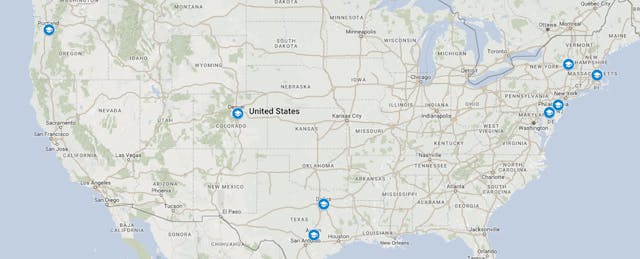By the end of this year, students may be able to use federal aid to learn skills like coding, or advanced manufacturing, from companies like Flatiron School and General Electric.
This mashing of federal dollars, public universities and private companies is part of a closely-watched experiment from the Department of Education, called Educational Quality through Innovation Partnerships (EQUIP). The department, which announced EQUIP last October, is inviting eight partnerships between higher-ed institutions and nontraditional education providers to create programs eligible for federal student aid.
Existing rules currently prohibit colleges that offer federal student aid from outsourcing 50 percent or more of their content and instruction to un-accredited, outside organizations. By waiving these restrictions, the department hopes to increase the flexibility and affordability of higher education for “new normal” students—those who are low-income, working part-time, first-generation, for instance.
“Higher education has never mattered so much to so many as a means to social mobility, as an engine of our economy, and as a way for individual to better themselves and move into the middle class,” Under Secretary of Education Ted Mitchell said in a press conference. “We’re excited to start working with EQUIP sites to get their programs off the ground as quickly as possible.”
The department received “dozens” of applications, according to Mitchell. The eight education companies chosen represent a mix of coding bootcamps ( Epicodus, Flatiron School, MakerSquare, Zip Code Wilmington) and online education providers (Guild Education, StraighterLine, Study.com). Then there’s General Electric, which is working with Northeastern University to provide training in advanced manufacturing.
The estimated cost of these programs will vary widely. A one-year certificate program in management and leadership fundamentals from Colorado State University-Global Campus and Guild Education will cost students $6,780. A certificate program in web development from Flatiron School and SUNY Empire State will cost roughly $15,000, estimates Flatiron co-founder and CEO, Adam Enbar.
The department will make $5 million in Pell grants available for the first year of the EQUIP, and expects roughly 1,500 students will participate in these programs. (They can each receive up to $5,815 for the 2016-17 school year.) Another $12 million in the form of subsidized and unsubsidized loans will also be made available.
While the financial aid goes directly to students to use for the programs, how the partners divide and use the money is up to the college or university. “The institution will be the banker,” Mitchell says. The University of Texas (UT), which is partnering with coding bootcamp MakerSquare to offer a 13-week certificate program in web development, will charge between $13,000 and $14,000 for the program. Students will pay UT tuition (including Pell grants or other federal financial aid); UT will participate in a revenue-share model with MakerSquare and pay a fee to third-party accreditors.
Along with an accredited college or university and a nontraditional education provider, these partnerships also require a third-party “quality assurance entity” (QAE) to review and evaluate the program. These QAEs will provide a “thumb on the pulse to allow us to take action if necessary,” says Mitchell, who assures that there will be protections to ensure students achieve the outcomes that programs say they’ll provide. “We want to make sure it’s an experiment where students and taxpayers don’t lose out,” he says, adding that in some cases the nontraditional provider will provide a full tuition refund if students don’t find jobs at the end of the programs. The department will wind down programs that don’t meet expectations, ensuring current students finish and barring future ones from enrolling, he adds.
The eight selected partnerships will now go through a final “Phase Three” round of review, which includes securing a final sign-off to operate from the QAE and the university’s existing accrediting agency. Once approved, these programs can operate as early as this upcoming fall and winter.


